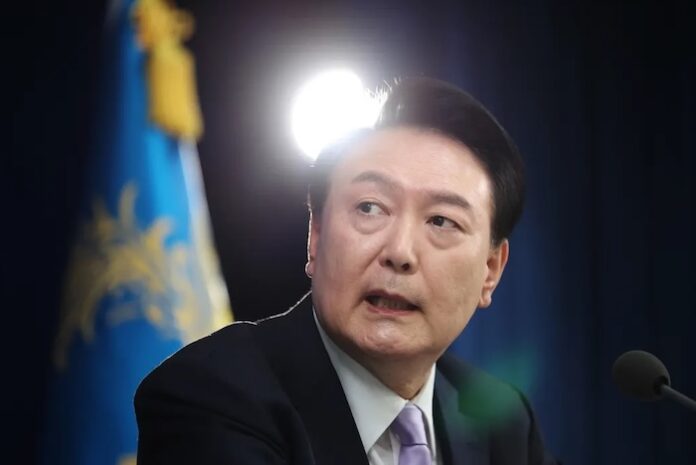South Korean President Yoon Suk-yeol is set to face a second impeachment motion in the National Assembly on Saturday, just a week after a previous attempt by the political opposition fell short.
The stakes are high following Yoon’s controversial declaration of martial law on December 3, which triggered nationwide protests and heightened uncertainty for Asia’s fourth-largest economy.
For the latest impeachment motion to succeed, it must secure at least 200 votes – a two-thirds majority – in South Korea’s 300-seat National Assembly.
The opposition bloc holds 192 seats, leaving it eight votes short of the number required.
However, in recent days, a small yet growing number of legislators from Yoon’s governing People Power Party have openly supported the motion, making impeachment increasingly more likely.
In a defiant televised address on Thursday, Yoon dismissed the idea of voluntary resignation, stressing, “Whether they impeach me or investigate me, I will stand firm.”
What happens if Yoon is impeached?
If the National Assembly passes the impeachment motion, a series of legal and constitutional processes will unfold, starting with the official delivery of the impeachment resolution from the National Assembly to the President’s Office and the Constitutional Court.
From that moment, Yoon’s presidential powers will be suspended. He will still retain the title and some privileges associated with the presidency, including the presidential residence, and continued security protection.
During this period, South Korea’s prime minister will assume the role of acting president under Article 71 of the Constitution. (Al Jazeera)
The post South Korea’s President faces second impeachment motion appeared first on Islandnews.





